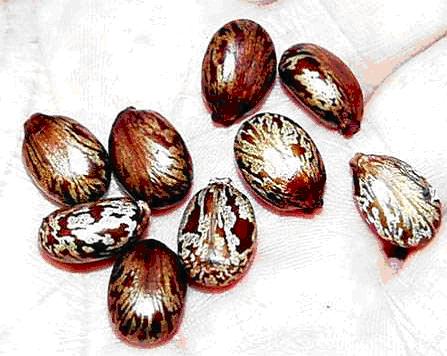Archived content
NOTE: this is an archived page and the content is likely to be out of date.
Fujitsu Develops New Bio-Based Polymer from Castor Oil
New material offers superior flexibility, has potential for use in manufacturing of small components in Fujitsu products
Fujitsu Limited,Fujitsu Laboratories Ltd.
-
[1] bio-content
The proportion of a product's organic components derived from plant materials.
-
[2] castor bean
A member of the spurge family Euphorbiaceae grown in Africa, the oil made from the seeds of this bean is used in products such as nylon, coatings, cosmetics, and pharmaceuticals.
-
[3] polylactic acid
A bio-based polymer made using lactic acid derived from the fermentation of starches and saccharides from sources such as corn and potatoes.
-
[4] Arkema
Originally the chemicals division of Total Group, and spun off as a separate company in May 2005. Main lines of business include performance products, industrial chemicals and vinyl products.
-
[5] polyamide-11 (PA-11)
A polyamide resin converted by polycondensation reaction from 11-aminoundecanoic acid, which is produced from castor oil derived from the seeds of the castor bean. Arkema is the world's only supplier of “Rilsan”, its original product using the polyamide-11 material.
About Fujitsu
Fujitsu is a leading provider of customer-focused IT and communications solutions for the global marketplace. Pace-setting device technologies, highly reliable computing and communications products, and a worldwide corps of systems and services experts uniquely position Fujitsu to deliver comprehensive solutions that open up infinite possibilities for its customers' success. Headquartered in Tokyo, Fujitsu Limited (TSE:6702) reported consolidated revenues of about 4.8 trillion yen (US$40.6 billion) for the fiscal year ended March 31, 2006. See http://www.fujitsu.com for further information.
About Fujitsu Laboratories
About Fujitsu Laboratories Founded in 1968 as a wholly owned subsidiary of Fujitsu Limited, Fujitsu Laboratories Limited is one of the premier research centers in the world. With a global network of laboratories in Japan, China, the United States and Europe, the organization conducts a wide range of basic and applied research in the areas of Multimedia, Personal Systems, Networks, Peripherals, Advanced Materials and Electronic Devices. For more information, please see: http://jp.fujitsu.com/group/labs/en/
Customer Contacts
Environmental Engineering CenterCorporate Environmental Affairs Unit
Inquiries
![]() Phone: +81-44-754-3417
Phone: +81-44-754-3417
Company:Fujitsu Limited
All product and company names referenced herein are trademarks or registered trademarks of their respective owners. Information provided in this press release is accurate at time of publication and is subject to change without advance notice.
Date: 07 December, 2006
City: Tokyo
Company:
Fujitsu Limited,
Fujitsu Laboratories Ltd.,
,
,
,

